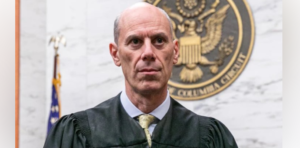Vinay Prasad, FDA Chief Departs Amid Gene Therapy Controversy — Dr. Vinay Prasad, the FDA’s newly appointed Chief Medical and Science Officer and former head of the agency’s Center for Biologics Evaluation and Research (CBER), has abruptly stepped down, less than three months after taking office.

The U.S. Department of Health and Human Services (HHS) confirmed Prasad’s departure on July 30, 2025, stating that he “did not want to be a distraction to the great work of the FDA in the Trump administration,” and he is returning to California to spend time with his family.
Background and Short Tenure
Dr. Prasad was appointed Director of CBER on May 6, 2025, and was elevated to FDA Chief Medical and Science Officer in June. A hematologist‑oncologist and epidemiologist at UCSF, he had gained prominence as a vocal critic of COVID‑19 vaccine mandates, booster policies, and expedited drug approvals.
From the outset, Prasad’s contrarian views—such as questioning the value of annual COVID boosters and advocating for randomized controlled trials—put him at odds with both public health officials and the pharmaceutical industry.
Elevidys Gene Therapy Incident
A major flashpoint during his brief tenure was the controversy over Elevidys, a gene therapy developed by Sarepta Therapeutics for Duchenne muscular dystrophy. After the reported deaths of several young patients from liver complications, the FDA, under Prasad’s leadership, requested Sarepta voluntarily suspend shipments. When the company refused, Prasad threatened to halt clinical trials entirely.
However, the FDA reversed course just one day prior to Prasad’s resignation, allowing continued shipment under tightly controlled conditions. This episode triggered both political scrutiny and criticism from patient advocacy communities, who feared disruption to access.
Political and Internal Pressures
Prasad also faced a sustained public pressure campaign led by conservative activist Laura Loomer, who resurrected past social media posts in which he criticized Donald Trump, supported progressive figures like Bernie Sanders and Elizabeth Warren, and allegedly joked about “cursing” Trump. Loomer labeled him a “progressive leftist saboteur undermining President Trump’s FDA.”
Former Republican Senator Rick Santorum also voiced objections, reportedly after reaching out to White House officials, claiming Prasad’s actions were hurting innovation and patient access.
Policy Reforms and Conflict at FDA
During his short tenure, Prasad introduced a more cautious framework for vaccine approval—raising alarms over possible delays and regulatory bottlenecks. This approach conflicted with the agency’s recent deregulatory goals championed by FDA Commissioner Marty Makary and HHS Secretary Robert F. Kennedy Jr.’s “Make America Healthy Again” (MAHA) agenda.
Prasad’s appointment followed the ousting of long‑serving former CBER director Peter Marks, who had accepted the approval of Elevidys despite concerns. Marks criticized the HHS for succumbing to misinformation.
Implications for FDA and Next Steps
Prasad’s departure underscores escalating tensions within the FDA between evidence‑driven regulatory science and political influence. His resignation highlights broader uncertainty about the future integrity and independence of U.S. biomedical regulation.
Going forward, the FDA must balance demands for faster approvals and innovation with scientific rigor and safety oversight—especially in areas like gene therapy, vaccines, and rare disease treatments.
Expert Opinions & Analysis
– Health policy experts warn that Prasad’s approach signals a shift toward more stringent evidence standards in regulatory medicine—especially in post‑pandemic drug evaluation.
– Patient advocacy groups express concern over access disruption amid sudden policy reversals on life‑saving therapies. mint
What It Means for U.S. Biotech Regulation
Prasad’s rapid exit may influence future leadership appointments within the FDA, especially in areas touching on genetically targeted therapies. It also serves as a cautionary tale about how political activism and social media controversies can directly impact scientific governance.
Whether his departure marks a return to traditional FDA policymaking—or signals further upheaval—remains to be seen.
Conclusion
Vinay Prasad’s tenure at the FDA, though brief, proved highly consequential—highlighted by clashes over Elevidys, partisan political backlash, and debates over regulatory philosophy. His exit on July 30, 2025, reflects broader fault lines in U.S. health governance and may have lasting effects on how scientific caution is weighed against expedience.
Subscribe to trusted news sites like USnewsSphere.com for continuous updates.





